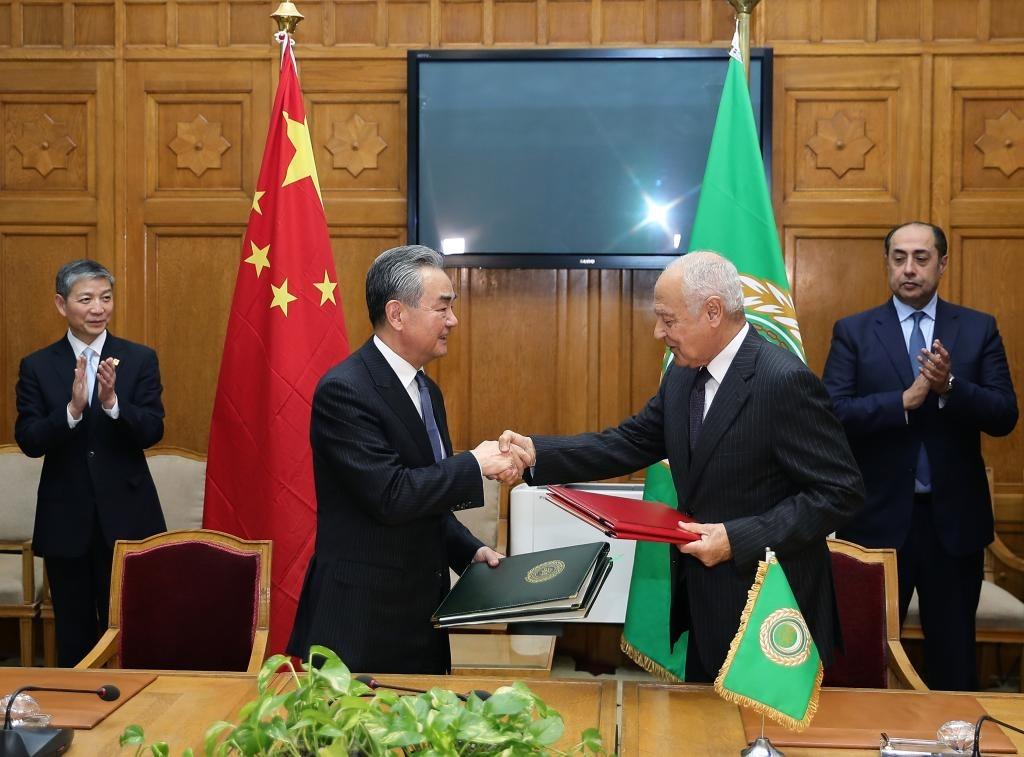 Chinese Foreign Minister Wang Yi, also a member of the Political Bureau of the Communist Party of China Central Committee, meets with the League of Arab States Secretary-General Ahmed Aboul Gheit in Cairo, Egypt, Jan 14, 2024. (PHOTO / XINHUA)
Chinese Foreign Minister Wang Yi, also a member of the Political Bureau of the Communist Party of China Central Committee, meets with the League of Arab States Secretary-General Ahmed Aboul Gheit in Cairo, Egypt, Jan 14, 2024. (PHOTO / XINHUA)
Continuing a Chinese diplomatic tradition that has now entered its 34th year, Foreign Minister Wang Yi is visiting African countries on his first overseas trip of the year.
This month is destined to be a busy one for the country's senior diplomat. As well as his visits to Egypt, Tunisia, Togo and Cote d'Ivoire, the second half of the trip will also take him to Brazil and Jamaica.
If the year-opening visit to the United States by Liu Jianchao, head of the Communist Party of China Central Committee's International Department, signified a strong desire for stabilizing ties with the US-led West, Wang's Africa trip reveals the weight Beijing places on the Global South.
As the visiting Chinese diplomat told his Egyptian hosts, Egypt is a major Arab, African, Islamic and developing nation bestowing upon it special geopolitical significance in Chinese foreign policy.
Egypt was the first African and Arab country to establish diplomatic ties with China. And as Wang and Egyptian Foreign Minister Sameh Shoukry both agreed, that Egypt has again been the destination for the Chinese foreign minister's first overseas visit of the year showcased the two countries' long friendship.
Over the decades, Chinese and Egyptian foreign policies have aligned well under the guiding principles of peaceful coexistence, mutual respect and noninterference in each other's internal affairs. Egypt, as a key member of the African Union and the Arab League, wields critical influence on the peace, stability and prosperity of the corresponding regions, hence the world at large. China finds Egypt to be an ideal partner for the materialization of its global security, development and civilization initiatives, and a key participant in the Belt and Road Initiative.
In addition to the tangible benefits Belt and Road cooperation brings to both sides, as Wang said, China and Egypt are key factors for global strategic stability. Praising the two countries' relationship as all-round strategic partners, which is now in its 10th year, Wang said China is willing to work with Egypt to support equitable, orderly multipolarization and inclusive economic globalization, and to safeguard the common interests and legitimate rights and interests of developing nations by prompting international governance to proceed in a just and reasonable direction.
The two countries' joint declaration on the Palestinian issue was a timely answer to a historical impediment to lasting peace in the Middle East. Upholding the general international consensus on a two-state solution, the two countries' foreign ministers proposed a Palestine state with full sovereignty and independence, based on the 1967 borders and with East Jerusalem as the capital. Wang also called for a larger-scale, more authoritative international peace conference of more practical effect, the goals being a concrete timeline and road map for the realization of that solution.
The friendship between China and Egypt has brought tangible benefits to the two peoples and set a model for South-South cooperation, Wang's visit shows that it will continue to do so as the two sides raise their relations to new heights.


